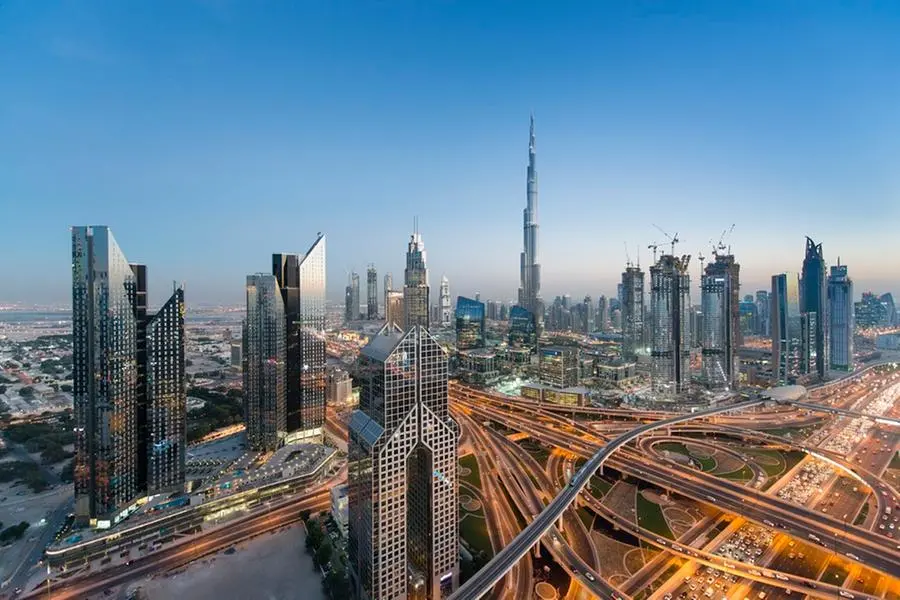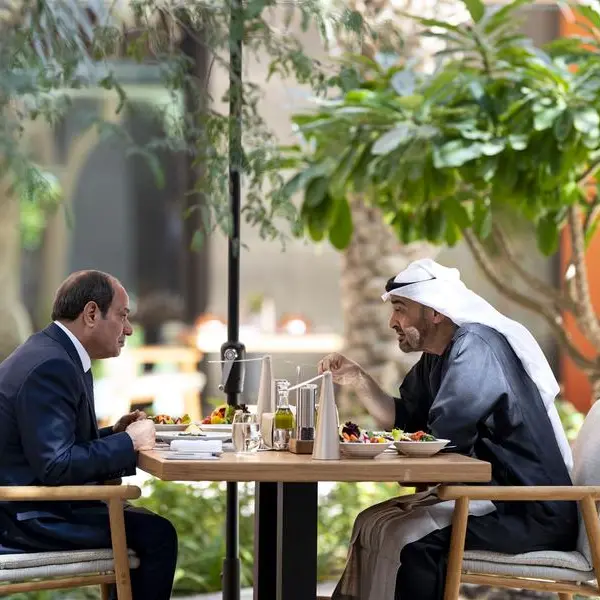PHOTO
Buoyed by a stronger-than-expected non-oil GDP growth in the UAE and Saudi Arabia, the Middle East economy remains robust, despite oil cuts and geopolitical turbulence, according to economists.
The latest PwC Middle East Economy Watch indicates that the regional economy remains resilient as the non-oil sector's growth is anticipated to stay robust, buoyed by a stronger-than-expected non-oil GDP performance in 2023 and Purchasing Manager Indices (PMI) in Saudi Arabia and the UAE, which are solidly in expansionary territory in early 2024.
The UAE has achieved “a historic first” as its robust national economy reached a milestone in its diversification drive with the non-oil sector accounting for 73 per cent of the country's total GDP. “This achievement reflects the confidence of the private sector and investors around the world in the UAE’s investment environment,” Abdullah bin Touq Al Marri, Minister of Economy, said while predicting that the Arab world’s second-largest economy would grow by up to 5.0 per cent in 2024.
In March, non-oil economies of the UAE and Saudi Arabia continued to expand, driven by a sharp rise in new orders and output growth. As the world's biggest oil exporter transforms its economy under its Vision 2030 diversification agenda, its economy is projected to grow by 2.7 per cent this year and 5.5 per cent in 2025 after contracting by about 1.1 per cent last year due to cuts in oil output, The kingdom has been implementing initiatives and policy reforms that are aimed at cutting its dependence on oil revenue, broaden its non-oil economic base, further boost domestic industries, and support the development of sectors including technology, property, tourism and infrastructure.
Richard Boxshall, partner and chief economist, PwC Middle East, said oil demand plays a key role in influencing the growth of oil-exporting Middle East countries. “Nonetheless, strong growth in the non-oil sector is expected to counterbalance these impacts.”
“The region is increasingly focusing on sustainability, aligning with net zero ambitions and the imperative for economic diversification. The growth in green finance is a strong indication of this focus and has the potential to enhance the region's appeal to foreign investors,” Stephen Anderson, partner, Middle East Strategy leader at PwC Middle East. Said.
The PwC report also emphasised the potential of green finance to hasten economic diversification and job creation across the region, while also attracting Foreign Direct Investment (FDI).
The report noted that there is a growing momentum around green financing following the success of COP28 and the introduction of green finance frameworks in the region. In 2023, the issuance of green bonds and sukuk in the Middle East doubled to $24 billion, led by the UAE and Saudi Arabia. “This momentum continues in 2024, with Oman publishing a Sustainable Finance Framework, while Qatar’s finance minister announced at Davos that its debut green bond would be coming soon. Saudi Arabia is also considering a sovereign green issuance, in addition to the large sums raised by the PIF.”
Oil cuts are extended, but the non-oil sector remains robust: Opec+ members have agreed to extend production cuts into the second quarter of this year, recognising slower growth in demand for oil, alongside the risk of increasing supply from non-Opec+ countries. The production cuts mean that the oil sector will likely contract in 2024 compared to last year. Saudi Arabia has also paused its plans to increase oil production capacity given supply/demand dynamics. However, this move will free up capital for investment in alternative energy projects, including gas and renewable energy sources.
Currently, Qatar has announced ambitious plans for the expansion of its liquefied natural gas (LNG) capabilities, particularly with the introduction of the North Field West project. This initiative marks a significant phase in Qatar's strategy to enhance its LNG production capacity, further cementing its position in the global LNG market, and is in line with the more optimistic prospects for gas compared to oil, and its appeal due to the lower carbon emissions associated with gas.
According to PwC economists, the disruption to Red Sea trade has revived discussions around the need for alternative trade corridors. Two major trade routes proposed in recent years are the India-Middle East-Europe Economic Corridor (IMEC) and Iraq’s Development Road, both having their challenges and advantages. Progress on either initiative is unlikely until the current conflict is resolved.
Copyright © 2022 Khaleej Times. All Rights Reserved. Provided by SyndiGate Media Inc. (Syndigate.info).





















